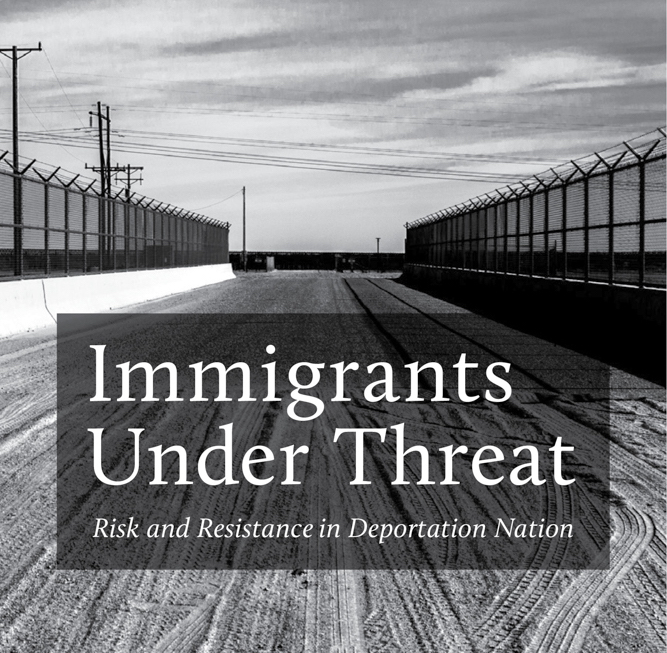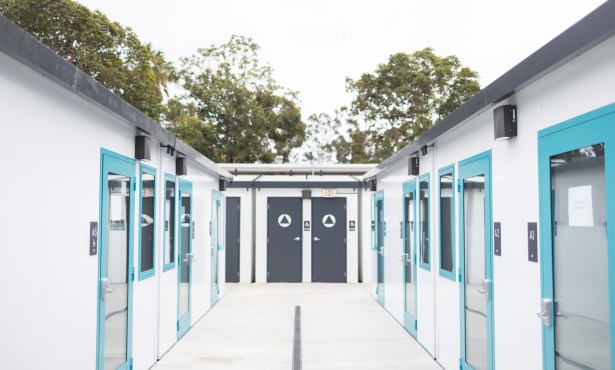Experiencing Life in Deportation Nation
An Interview with Sociologist and Author Greg Prieto

Sociologist Greg Prieto’s Immigrants Under Threat: Risk and Resistance in Deportation Nation (NYU Press) takes a stark look at our Santa Barbara community. The book is a culmination of Prieto’s years of research for his doctoral dissertation at UCSB, during which time he collaborated and worked with local nonprofits, participating in their various campaigns in order to understand the everyday risks of immigrants in our communities and how they respond to those threats. Prieto now teaches sociology at the University of San Diego.

Why should anyone read the book?
The book brings people into the world of migrant folks to understand what their concerns and what their aspirations are. The narrative is not just how hard immigrants have it, but why they are moved to risk so much. The second piece is that the immigrant rights struggle really gives citizens like us a window into a better political order, and in that way, the folks struggling from the margins of politics are showing us what a more just and equitable United States would look like.
What stood out for you about Santa Barbara’s immigrant community and how it interacts with social movements?
Immigrant folks really only have the bandwidth to deal with the struggles that are immediately present. But those same survival strategies also allow them to understand their grievances as a manifestation of broader injustices. Organizers can then leverage the threats that exist in the political climate to spur [immigrants] to action. Even folks living in the margins of American political life are going to find ways to push back on the structures that immiserate them. The question is not whether they will resist, but what form that resistance will take.
Considering our current administration, what kind of social movements make a difference in the lives of immigrants?
There is no opportunity in the White House, so we can try to reapply that pressure at the state and local level. And we’ve done that. Though deportation has always happened and, of course, is hugely consequential and devestating, the biggest issue for migrant folk in Santa Barbara a few years ago was 30-day car impoundments. One group ran a campaign to end this policy. At the time, undocumented people [couldn’t] qualify for a license, and when they were driving on the road they got their cars taken away. I ran into people who had four or five cars taken away in the span of a year. That is a massive expense for a low-income family. We couldn’t get then police chief Cam Sanchez to stop impounding the cars of undocumented drivers, but he agreed to end that 30-day impound, and that meant the difference between several hundred dollars versus several thousand. So there are these small ways, at the local levels, that get migrant folks some relief.
One way immigrants were getting their cars impounded was because of rosaries hung around their rearview mirror, is that right?
The most common thing we heard was that people were pulled over for taillights being out, but the other one we heard frequently was having something hung around the rearview mirror. It was those little pretexts that brought undocumented drivers into contact with local police, and we had a mountain of stories like that. The kinds of things we take for granted become a form of suspicion for undocumented folk.
Your book included many interviews, especially one with a woman called Ximora. Tell us about her story.
Ximora was somebody sitting on the edge of that transition between immobilization and empowerment. She fled domestic violence in her native country, came to California with her children, and eventually settled in Santa Barbara. Here she met another man, and the abuse began anew. In her case, you see the most extreme example of what can happen when your undocumented status pushes you into the shadows of law and politics. She refused to call the police for months because she was worried about deportation. When the man began threatening her young son, she was finally spurred into action. She met a woman whom I call Esmeralda, a community liaison, who introduced Ximora into social movement activities, where she began to come out of her shell. Over the course of our interview, we see a woman who describes herself as being alone, scared, and unable to ask for help to somebody who knows she has rights and is ready to demand them.
You mention that immigrants are very aware of injustices. What are some examples of this?
One example jumps to mind immediately. A father with a wife and young child worked as a day laborer. One day, he and his crew were speaking in Spanish during lunch, and the white foreman, who had hired them at a day-labor center, thought they were making fun of him. He flies off the handle, gets in their face, and basically kicks them off the job site. They weren’t talking about him at all. They were just laughing in a language that this man didn’t know. That really echoes a scholarly refrain when we’re describing what immigrant politics are like: “We want your labor, but we don’t want you.” Here is a man that at the start of the interview is really pleased with his life in Santa Barbara, and yet there was this abiding sense that Mexicans will do the kind of work that no one else will do for almost nothing and receive no respect for it. And I heard that again and again and again: “If our labor is valuable, then you should also value our lives.”
These interviews tie the immigrant experience directly into the whole fabric of Santa Barbara life. Was this your original intention? Immigrant exploitation purchases so much of the advantage that we enjoy in Santa Barbara. We are all implicated in their struggle because we benefit from their exploitation. I tried to explain why these folks are not deserving of more punishment, regulation, and control. These are folk that are deserving of a reasonable chance at membership in this community that they have already contributed so much to.
So this is why you consider community service work so important?
Movements can’t be sustained if it’s up to just the folks that are most directly impacted. Those most affected by the deportation policies are those least available to combat them. We need leaders backed up with resources, organizations, and networks. All of us, whether with our time or with our money, should be investing in these organizations because they are the critical infrastructure that carve out spaces of security. Every single person in Santa Barbara, and throughout this country, has an opportunity to make a real, concrete difference in the daily experience of the most vulnerable among us.



